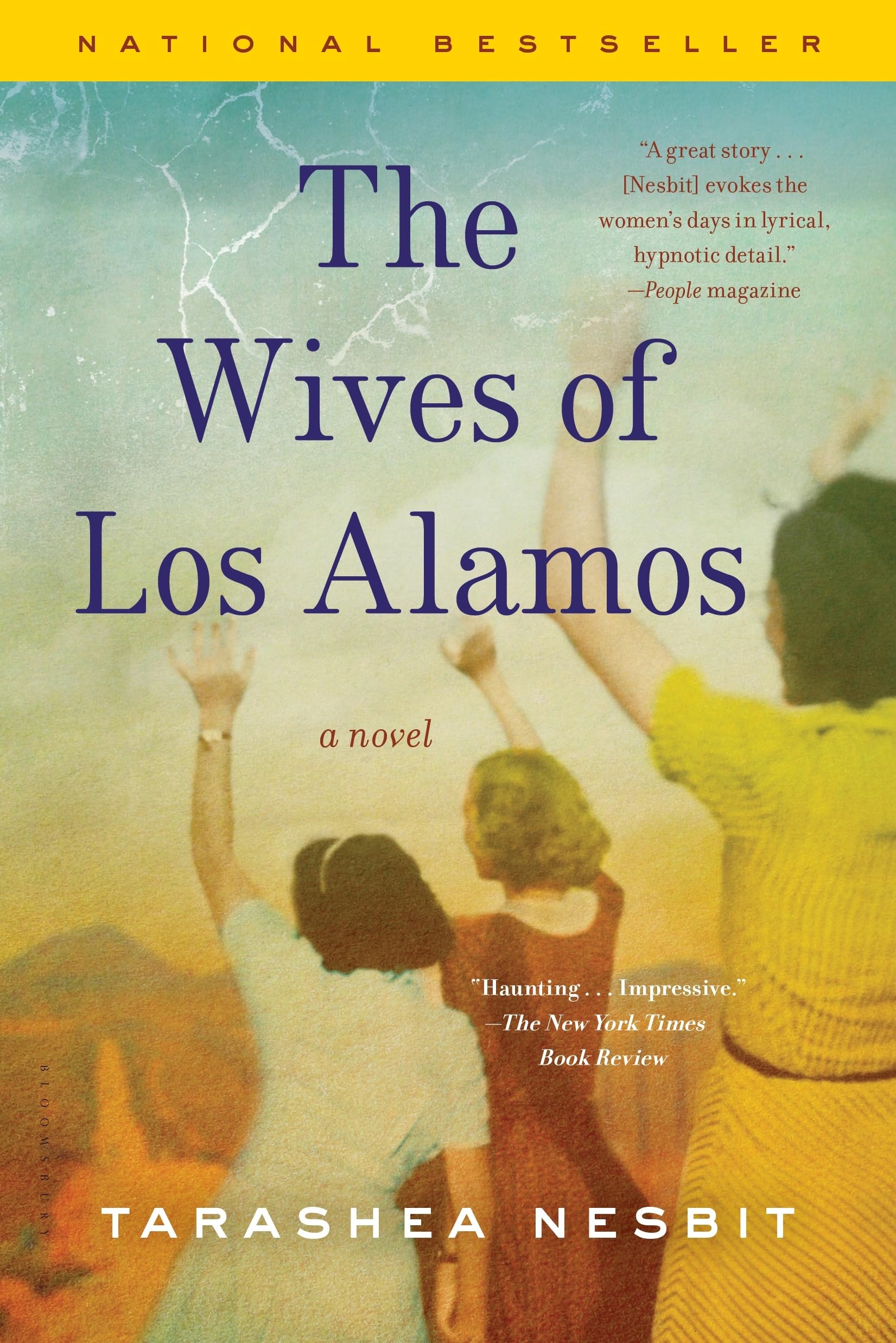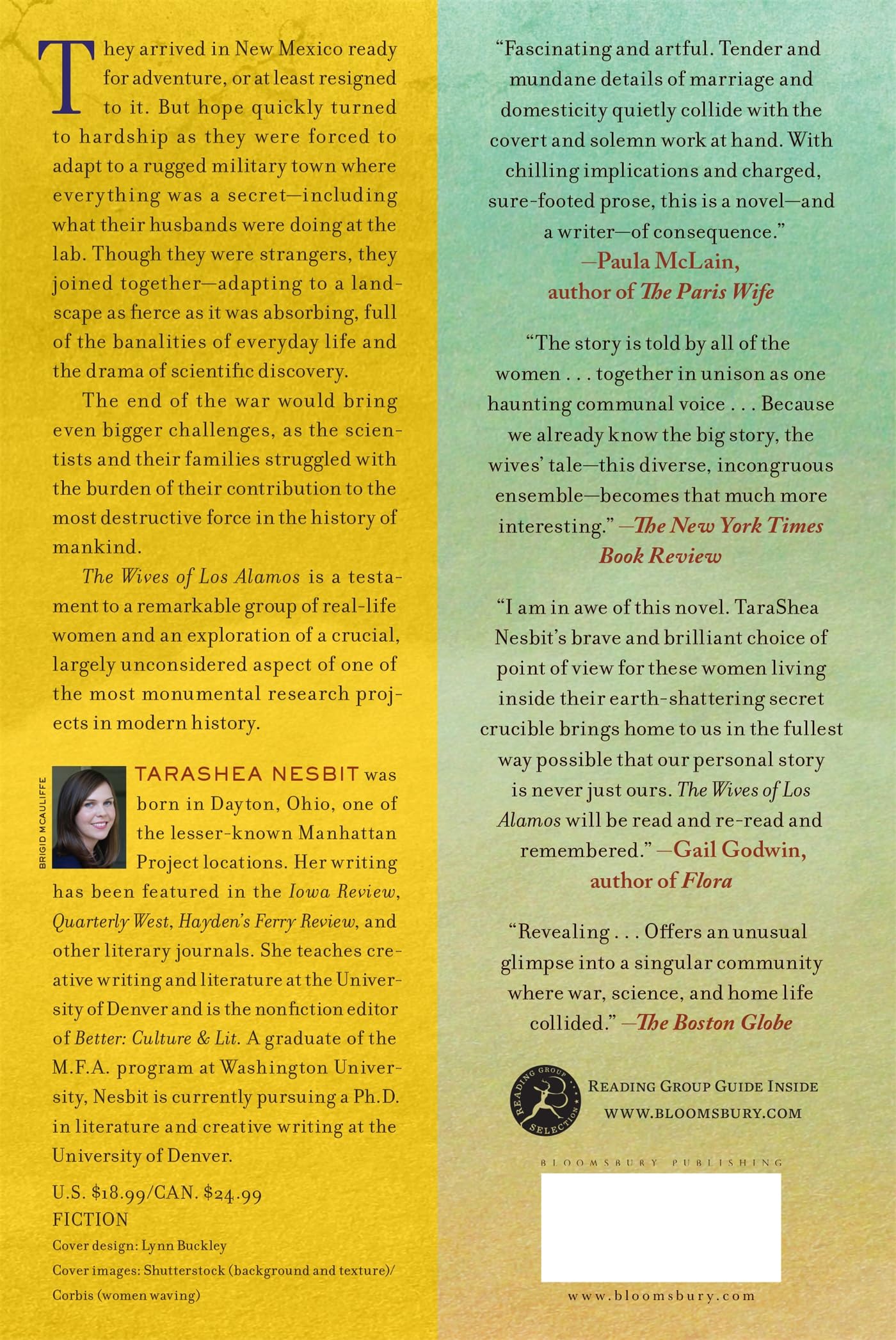Customer Services
Copyright © 2025 Desertcart Holdings Limited



Full description not available
V**E
Unique POV Creates a Group Experience of what it was like to be a wife of the scientist creating the Atomic bomb -- in 1/10th th
I loved this book. I caught on immediately to what the author was trying to do with her group-pov. She was telling the reader what it was like to be a wife of the scienticts creating the Atomic bomb during the war years while being sequester in Los Alamos which resembled a concentration camp more than an American town. There was no doubt in my mind that the reader was given that experience. And this experience was not from just one woman's pov but rather from the many origianl wives who set up home in the deepest secrecy in that strange location.Knowing what one wife went through would provide a one dimensional experience while knowing what many of the wives experienced created a multi-dimensional experience that was more reflective of life itself. In this respect the author an amazing job of showing all aspects of daily life during those times. This is not so much a novel as it is a "You Are There" experience.I really feel I now know about what it was like to be a wife to those men at that time. I have concluded that these wives were just as much a part of the Greatest Generation as any other of its members.I must say that while I bought this book, I chose to buy and listen to it on Audible. The reader and the pov of this story makes it ideal as a listening experience. There is no confusion whatsoever in the pov the way the reader reads this story. I really believe that many of those who did not like the group-pov when reading the story, will still love the audio presentation. I've listened to over 1000 audio books and this is one of the best I've ever heard. Just listen to a sample and I think you'll agree.5 Star Listening Enjoyment from the first word to the last.
V**Y
Interesting and informative
The author made use of a unique literary device (in my experience) by narrating the entire book in the voice of first person plural. This book imparted a sense of immediacy to the experiences of the women who followed their scientist husbands to the lonely New Mexico spot where the atomic bomb was being developed in a frantic race to beat the Germans. It depicts their daily struggles against boredom, isolation, lack of cultural opportunities, etc. to carve out a meaningful existence. Many of the women were highly educated and managed to occupy themselves, but some turned to the daily cocktail hour for stimulation. Babies were born, marriages were strengthened or weakened, all in their circumscribed and secret world. Letters home were routinely censored, and even the wives didn't know what what really going on in the labs where their husbands worked. Then all was revealed in July of 1945 when the first bomb was detonated as the trial before Hiroshima and Nagasaki. The world was stunned by the death and devastation of those bombs dropped on those two Japanese cities and the war was ended. I read somewhere that WWII was ended and WWIII was begun on those days in August of 1945. Reading this book led to my reading of a biography of Robert Oppenheimer who ran the Los Alamos project. I learned a lot.
B**T
Quite a Unique TIme in American History
I have always felt if a book inspires you to think and talk about it and the subject matter it includes after you have closed the last page that it is a success. With that definition, I will say this book was a success. It told the story -- or stories -- of the thoughts and feelings of the experiences of the wives of those scientists and physicists who developed the atom bomb that was dropped on Japan to end World War II. What an experience to live through. Imagine being whisked off with your family to live in some secret place "somewhere out west" under mysterious conditions that you couldn't even tell your parents about, knowing at the core that your husband was involved in something secret having to do with the war.The writing style of the author was such that it conveyed the ambiguity of the wives by talking in generalities.When I say this made me think and discuss the subject, I wanted to discuss it more, but frankly I find it difficult to find people/friends who want to get involved in conversations that go to the core of war itself and/or eithical/moral issues related to developing weapons that can literally wipe out civilizations, etc. Considering the state of affairs today -- with Iran and other rogue nations developing nuclear weapons -- deterrence really is the name of the game for the continuance of mankind. In the near future, many more so-called rogue nations will have the capability of wiping out millions with one armed missle. Though we may "trust" such a weapon in the hands of the United States, who would believe the U.S. would actually release the weapon it did in WWII? In the hands of rogue nations, there is a real and dangerous threat to all of mankind. Thus, disarmnament by the so-called trusted nations alone is meaningless and leaves them at risk by those who would abuse the power. This is a subject that demands more open and serious discussion among so-called "friendly" governments in order to deter those who would (when they could) unleash such power.I am inspired to read more on this subject, so for that alone I believe this author did her job. Thanks.
Trustpilot
2 weeks ago
5 days ago